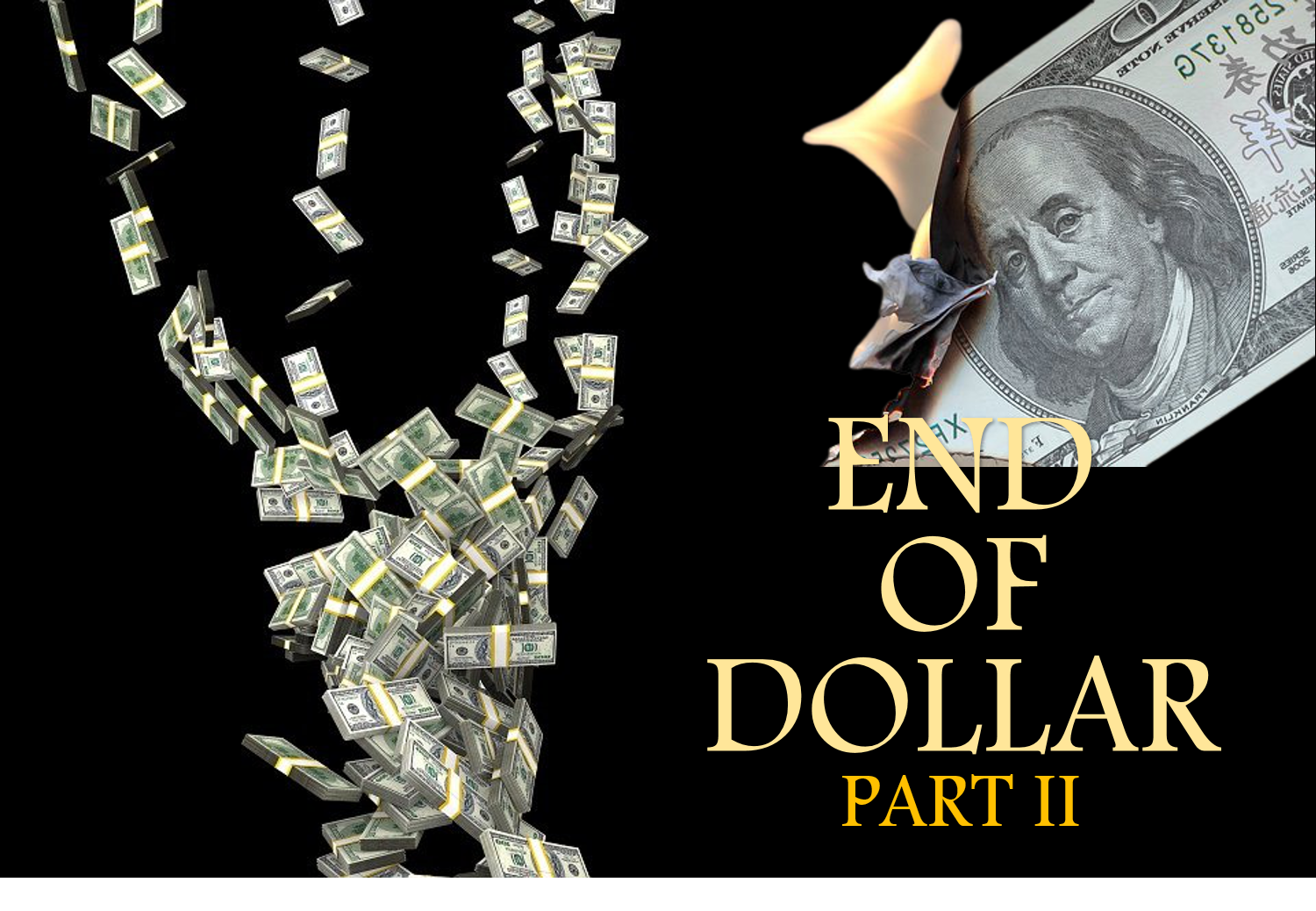As budget deficits accumulate in the near term, the downward pressure on the current account and savings will become more intense; the Congressional Budget Office put the federal deficit to gross domestic product at 16% by 2020, and projects to reduce it to only 8.6% in the following year. This will cause the post health crisis US net savings rate to enter even more negative and difficult territory, which will have ominous implications for the future of this country. In effect, the US is liquidating the savings it requires to maintain the expansion of its productive capacity, so it will need to borrow from surplus savings abroad to maintain growth, which at the same time will deepen the current account deficit.
It is at this point that the U.S. currency loses its special privilege, and because the dollar's position as a reserve currency has been slowly eroding since around the year 2000, foreign lenders are quite likely to demand more concessions in exchange for extending credit. The situation is such that the Federal Reserve has changed its strategy, now instead of having a specific growth target, it is basing its projections on inflation averages, and to give confidence it promises to keep interest rates close to zero for several years. The result will be that there will be more dollars circulating, but with a weakened value.
Importance of a strong dollar
The vast majority of nations have been trading and backing their money reserves in dollars for several decades, so a strong dollar is critical to the healthy stability of world economies. A large drop in the dollar would mean that investors who invest in this currency would see a decline in their real returns between the time they invest and when they cash out, dollar wages would lose purchasing power, private property and large or small U.S. companies would see their value decline. Panic would also be triggered, causing thousands to try to replace their capital in US currencies with other currencies or assets, creating a chain effect that would continue to devalue the world's main reserve currency, instability in the markets would become evident and the US economy would be greatly weakened, on the verge of an unprecedented crisis. The world economy would struggle to distance itself from the US dollar, something that has already been observed in the behavior of other nations.
Efforts to dethrone the dollar
Some countries, mostly on the left led by China and Russia, have dedicated efforts to replace the U.S. currency as the global reserve currency. Russia has been getting out of its dollars by buying huge amounts of gold in recent decades, China has also been reducing its dollar reserves for a long time, this has caused other countries to start joining the goal of decreasing dependence on the U.S. dollar, India, Iran and Turkey, already conduct small transactions in other currencies.
Pakistan joined Russia and China in early 2020 to also begin trading in local currencies, in fact, China and Pakistan have a strong trade agreement between them, one quite appropriate for Pakistan's economic situation, a country that in the past relied heavily on U.S. collaboration. Pakistan now feels increasingly comfortable with China.
But who would take the dollar's place?
There are strong indications that the dollar's 70+ year reign as the world's reserve currency is in its twilight, so there are only a couple of important questions to be answered: What will be the next currency to supplant the dollar's role as the world's reserve currency? Is there even a currency that is in a position and capable of doing so? A short and quick answer, there is none. For a currency to become a world reserve currency is a very difficult status to achieve. Among the indispensable requirements are that it comes from a country with a well-developed financial market and high liquidity due to its large and free economy, that currency should be easy to convert and widely accepted in international trade, so that large volumes of trade can be carried out. Political stability and a stable economic growth trajectory are also important, and at the same time, the country issuing this currency must be of great importance and global relevance.
There are more than 150 different currencies on the planet, but the candidates with certain viability to take the place of the U.S. dollar are really very few, and not very promising in the short term. These are some of them.

The first competitor anyone would think of is the Euro, this currency has great potential because the European financial markets are large and liquid, plus the Euro is fully convertible, it is accepted almost anywhere on the planet. The fact that the combined economy of the European Union is roughly the same size as the U.S. economy and is a major part of global trade is a great help in visualizing the Euro as a reserve currency.
However, on the negative side, European countries are far from acting as a team with the same vision, they are more like a dysfunctional family with territorial ties, reluctant and unable to analyze the economic outlook for the future, and on that basis make difficult decisions. Moreover, European legislations have many structural differences, such as the rigidity of the labor market and too many countries involved with different interests, making it difficult for the Euro to be a good option.
To be continue...

SOURCES
Images taken from lascosasdejuampa1.blogspot.com published by Juan Pablo, of free use for personal or commercial purposes.Image 1Image 2Image 3Image 4Image taken from pixabay.comImage 5Image 6Image 7All designs were created in PowerPoint.

Posted Using LeoFinance Beta




I thought as much that it's not very easy to replace the dollar as it has stood the test of time globally but then Euro is also trying their best but I don't see the replace it coming anytime soon or if it can even occur in the nearest future.
Posted Using LeoFinance Beta
I agree with you, it is difficult for the dollar to be replaced since it dominates the financial world and in case that could happen we would be talking about a restart, which would imply a temporary collapse of the economies.
Posted Using LeoFinance Beta